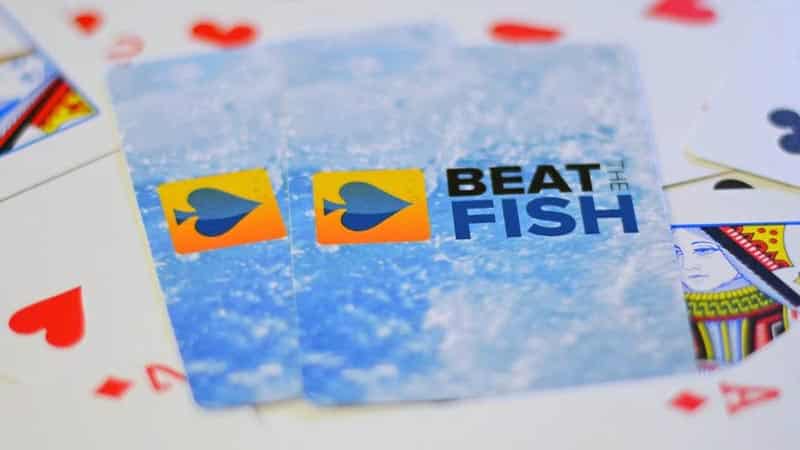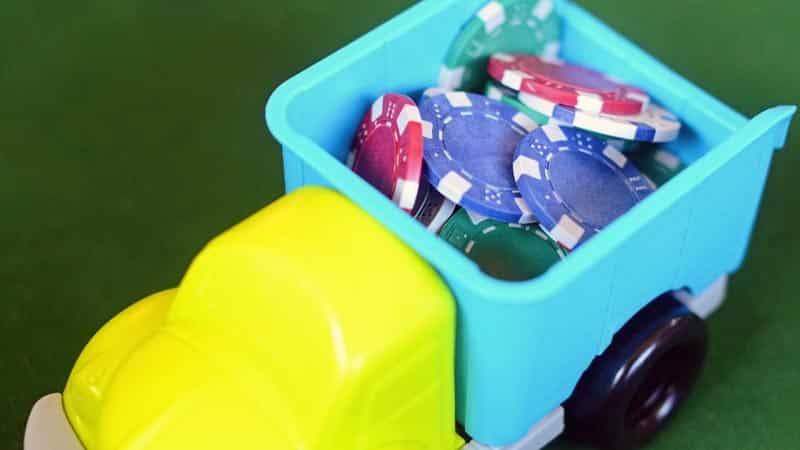Are You Ready to Play Poker Professionally?

So, let’s say you’ve been playing poker for a little while now. You’ve made a nice little profit and could make a living from your earnings, and now you’re considering quitting your day job to pursue poker full-time.
It’s going to be a long road ahead, but you can do it. I believe in you – and, I’m here to help you achieve this goal. I’ve seen plenty of casual players go from playing microstakes online and live cash games at $1/$2 stakes to transitioning into the world of professional poker. So, I know what it takes and I can help you on your path to becoming a poker pro.
Table of Contents
Ensure That You, In Fact, Are A Winning Player
Keep track of the hands you play and make sure that you’re turning a profit over a long period of time. Most pros will advise you to track your win ratio for at least 10,000 hands. Note how many hands you win and lose during this time and, if you’re not winning the majority, then it’s not time to quit your day job just yet. This is something that will also ensure that you have enough experience under your belt before you can consider going pro.
It might be a rude awakening to find out that you’re a losing player after playing thousands of hands – but, it’s better than learning that you can’t sustain winning once you’ve decided to quit your day job. If you are losing, then you can take a little more time to learn the ropes and practice more until you are ready to make the leap into the world of professional poker.
Give It A Test Drive
Changing careers is a big deal and, in most cases, you don’t really have the opportunity to try out a new path before you actually decide to go that route – but, with poker, you do. It’s a good idea to take a week off from your actual job to try gambling for a living.
Playing in your spare time is a lot different to playing all day every day. That’s what the reality is for lots of poker pros, as winning in live cash games isn’t enough to sustain a lifestyle. There are days where you’ll have a particularly bad session or you won’t be able to find a juicy game at the casino, and you’ll have to play online to supplement the loss of income – or, vice versa if you’re playing mainly online.
So, it’s important to find out first if you’ll be able to live and breathe poker. After a few days of playing full-time, you’ll be able to determine whether or not you have an appetite for it. Of course, pros will go through sustained periods of losing that will last more than a few days – but, a week’s trial will at least give you some insight into how it all works.
Make Sure You Have Enough Money in Your Bankroll and Your Life Roll
When you play poker professionally, you have to keep your poker bankroll separate from the money you use to spend in everyday life. All of your money for rent, bills, food, savings and entertainment should go into your life roll – and, you should never dip into it to fund your bankroll.

How much should you have saved for a life roll, then? The majority of professional poker players will keep at least six months’ worth of expenses aside. It might sound like a lot of money, but there are situations where you might go that long being in a rut, and it might be a while before you start scoring in cash games and tournaments. Saving up this much will take a while – but, it’s important that you have this little nest egg; otherwise, things can get pretty stressful.
Don’t Stop Learning
You might think that once you’ve managed to sustain winning over the course of your professional poker career, you can sit back, relax and continue to crush the game. However, as we’ve seen over the course of the past few years, the game of poker continues to evolve. The same strategies that were effective ten or twenty years ago will be outdated so, to maintain longevity at the tables, it’s important that you keep updating your knowledge.
In fact, Daniel Negreanu recommends that you dedicate 20% of your time to studying. You might think that most of your learning will take place at casinos, but you should also be spending plenty of time at home reading and discussing hands.
Find A Mentor or a Poker Coach
Like any pursuit I’ve undertaken in any aspect of my life, I’ve found that coaching from a real, live person is invaluable in helping me succeed. This is especially true when it comes to playing poker, as a coach will help you perfect your game in ways that posting on forums can’t.
It’s an investment but, if you think of a poker player like any other athlete, it’s pretty necessary to help hone your skill. In the way that runners and gymnasts have coaches to help them perfect their craft, a winning poker player also requires consistent coaching in order to improve in some areas and excel in others.
How A Poker Mentor Can Help
They will tell you whether or not you should have bluffed in this spot or if you bet the right amount into the pot with ace-king suited. Their years of experience in playing and watching poker will help you learn a thing or two or a thousand about how to improve your gameplay and increase your winnings.
You’ll develop a relationship with your poker coach, and they will get to know your style of play as you share your results with them and discuss hand histories. This will enable them to really dig into your strategy and help you turn yourself into a winning player. Even when you are playing poker full-time, having a coach can help you level up and advance to higher stakes or tournaments with larger buy-ins.

It might take you a while to find someone that you mesh with as a poker coach. So, don’t be afraid to shop around. Speak to several different coaches and get recommendations from friends to ensure that they can help you achieve your specific goals.
Take Care of Your Mental Health
No one really seems to talk about the mental health aspect of going pro. I’ve watched plenty of casual players make the attempt, and the journey to becoming a professional poker player can really take a toll on you, mentally. In one case, I saw a player completely burn out, unable to handle extended losing streaks. Many people don’t realize that the inherent nature of making a living by playing a game of chance – no matter how much skill is required to be a poker player – isn’t all glitz and glam.
It’s not enough to get great at playing poker and prove that you’re a winning player. If you’re not in a good headspace, then you won’t make it. So, even though pursuing a professional poker career is very time-consuming, it’s important that you take time out to look after yourself. Ensure that you get enough sleep every night, eat well and exercise regularly.
Many hopefuls get caught up in the late-night lifestyle of professional poker players, which can have an impact on these very basic pillars of self-care. So, I’d really advise using a life tracker app to make sure you’re staying on top of everything.
So, How Long Does It Take to Achieve Professional Poker Player Status?
From the moment you decide that you want to play poker professionally to the day that you can say “I’m a professional poker player” when asked what you do for a living could be as short six months or as long as a year. Rarely have I met anyone who taken over a year to go pro. In most cases, if it takes longer than a year, the player will probably quit before it gets to that point.
Do you think you’re ready to take the risk? It takes a lot of hard work both on and off the poker table to be able to go pro but, if you’re committed to making this dream come true and take your time getting there with the right attitude in tow, I’m willing to bet that you can get there in the long run.
✅ How much money can you make playing poker professionally?
When it comes to how much money you can make playing poker professionally, it really depends on the stakes that you’re playing at. Starting out, most new pros make just enough to cover their lifestyles which can range from $25,000 to $100,000 per year. On the higher end of the scale, you have high-rolling pros who make millions.
✅ How long does it take to become a professional poker player?
In most cases that I’ve witnessed, someone who works consistently towards becoming a professional poker player can achieve their goal within a year. I’ve seen some get there within a couple of months after cashing in a big tournament but others who have to grind it out to build their bankroll will take a year or just over a year.
✅ How often do you have to play to make a living?
If you’re serious about becoming a professional poker player, you should commit as much time to it as you would a full-time job. On top of this, you should research and study for a few hours every week.
✅ What are the risks of playing poker professionally?
When you play poker professionally, the main risk is that you will lose money in the long-term. However, you can counteract this by ensuring that you have a life roll to sustain you through longer losing streaks. If you are, indeed, a winning player, the string of losing sessions with end eventually and you’ll be able to resume playing and building your bankroll once again. Going pro also means putting your mental health at risk, since poker is such a volatile game – so, make sure that you have a support system in place and that you look after your well-being as you pursue professional poker as a career.










